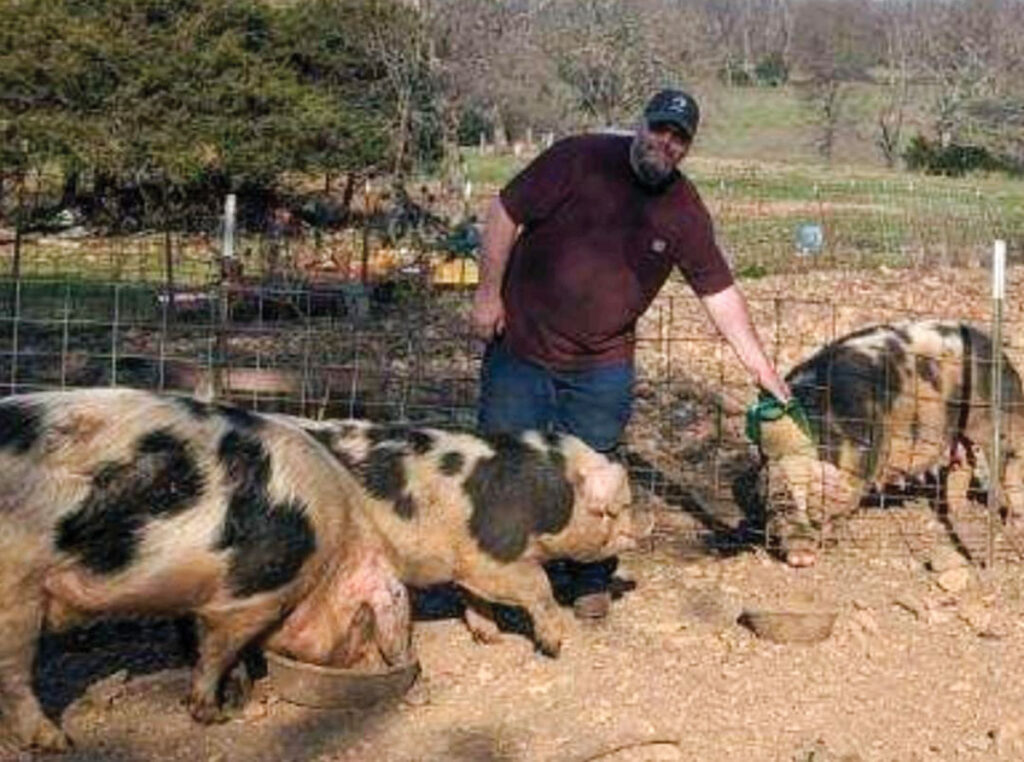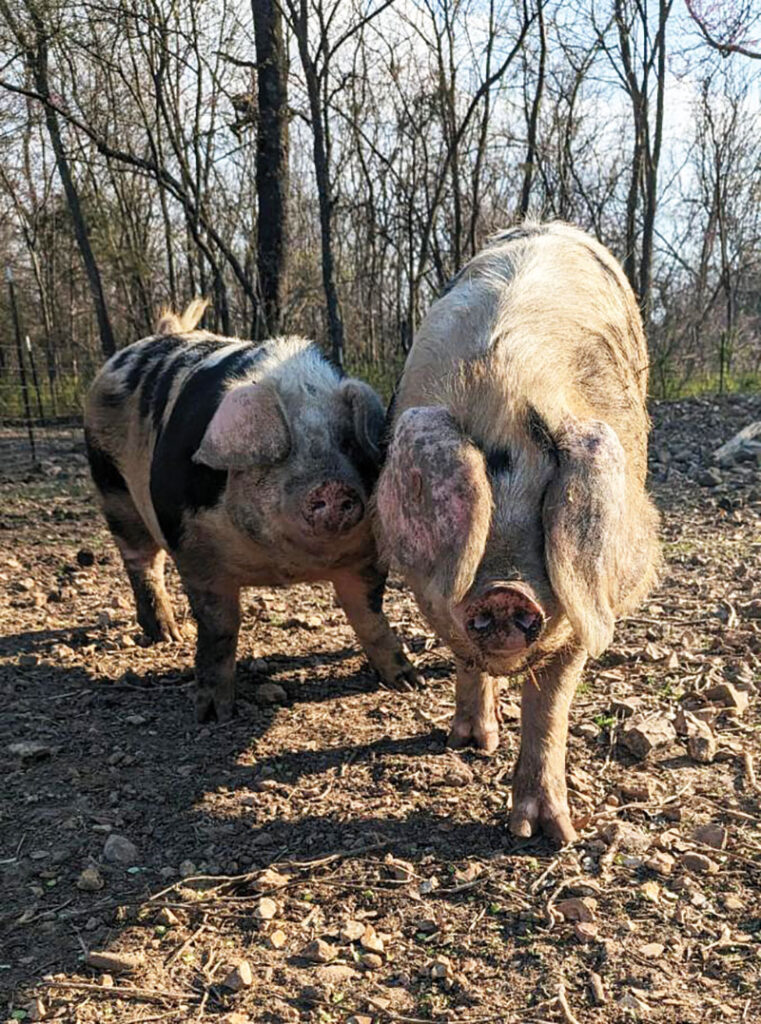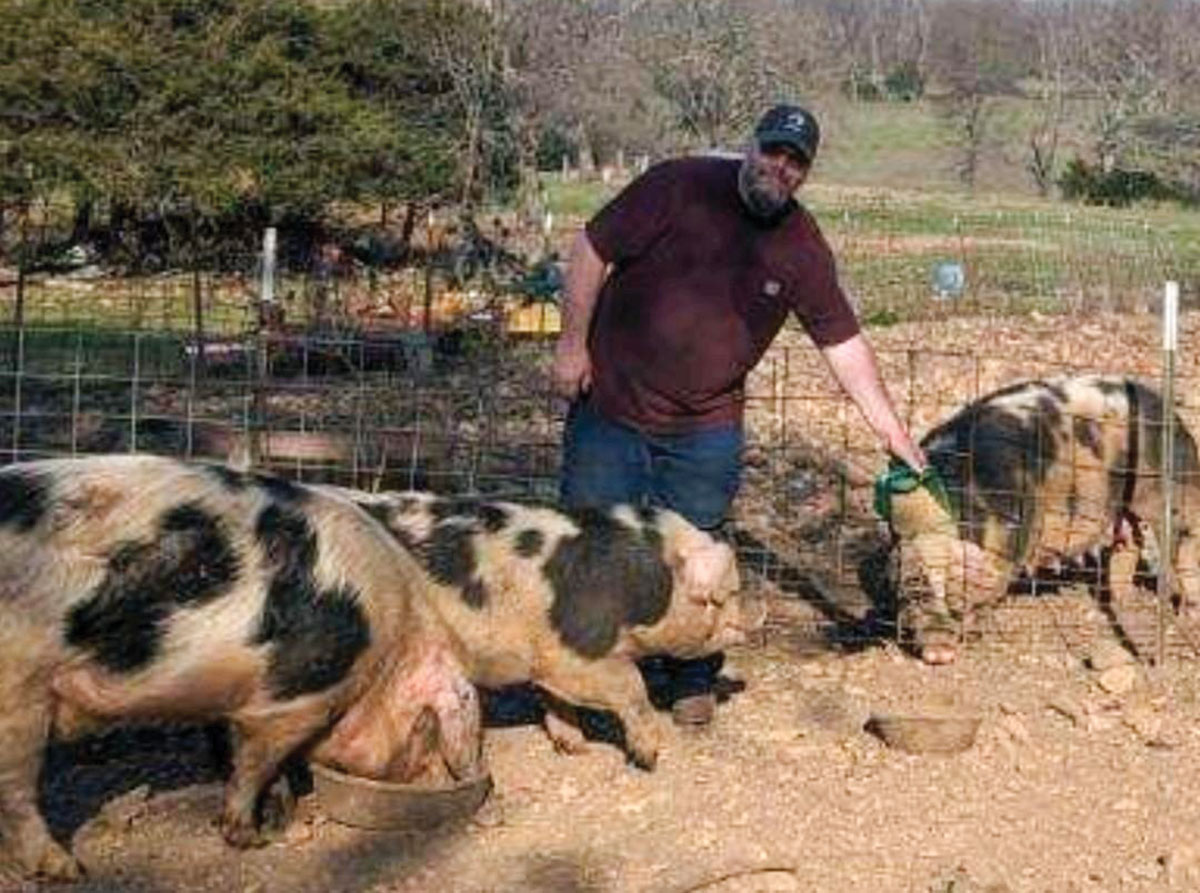
Drew and Melissa Jett say their operation is about more than money
ASH GROVE, MO. – Drew and Melissa Jett have been in the swine production business since 2007. Drew’s influence in the swine industry came from his grandfather, Conley Whitehead, and his uncle, Rick Whitehead, of Whitehead-Thomas Swine.
Drew began showing pigs in 1995. Drew’s grandfather gave him Godly advice on how to be a good steward of the farm and how to focus not on winning the “blue ribbon” for showing his swine but on enjoying the process of farming pigs.
He watched his grandfather feed the pigs, then turn the bucket over to sit on it and watch them. Drew learned having a connection to the process produced prize-winning pigs and placed the drive to provide his pigs with quality care and good growing standards.
Drew and his wife Melissa started their own swine business in 2007 on their farm in Ash Grove, Mo.
“I married into it,” Melissa said with a smile and a chuckle about her introduction into the swine industry. The Jetts pride themselves on producing top-weight Spotted pigs for show and market.
“It’s what my grandpa raised, and I want to carry on the family tradition,” Drew said about his breed selection.
The Jetts like the purebred Spots for show and want to continue to grow quality stock to sell for those interested in showing. Drew and Melissa are not presently crossbreeding their herd but are looking to focus on producing more pigs for the pork market in the future. They are considering cross-breeding their Spots with Durocs for that reason. Their small production farm currently houses 14 pigs that free-range on an acre of land.
“We have four pins that are used that equal about an acre, then we rotate between the pins weekly,” Melissa said. “We then separate them into other pins for keeping or feeding them out before they go to market or the processing plant.”
To get a good start, pigs receive a high-protein feeding regimen.
“We start with a 20 percent protein up until weaning, then drop to 18 percent until they reach 75 pounds, then drop to 16 percent until butchering or keeping as breeders,” Drew said.
The Jetts use no additional nutritional or growth supplements for their Spots.

“We don’t use antibiotics unless we have a severely sick pig, which rarely happens, and the vet recommends it,” Drew explained. “Instead, we keep our pigs healthy by providing healthy nutrition and working closely with a veterinarian. We keep our pigs wormed on a schedule of 4 weeks of age, 6 weeks of age, and at weaning. We worm as recommended by a vet for feeders and twice a year for breeding stock.”
Breeding begins at 7 months for females by natural cover. The Jetts breed their sows with hopes for spring and fall litters, which lessens death losses at farrowing.
The Jetts look for specific traits and genetics when selecting breeding pairs of the Spotted pigs. They check their feet and leg structure for muscle shape, good depth of the body and bone density, and structural correctness.
“Deciding factors for culling or marketing depend on all of those factors,” Melissa said. “If we have a pig that’s offspring are lacking in those areas, we look at possible reasons and then choose a mate that will fix the problem.”
The Jetts have farrowing crates for birthing to ensure the safety of piglets and themselves.
“When they pop, they pop. Hopefully it happens while we are there, but not always,” Drew said of farrowing.
The Jetts keep track of when the litters are due and watch sows until the time to birth, then place them in the farrowing crates until birth occurs. The barn has five farrowing crates to keep each sow comfortable and private. The babies are weaned at 6 weeks and started on a pig starter. Weaned males are castrated at 6 weeks by an open technique and using manual traction to remove the testicle to help reduce aggression and lessen unwanted mounting behavior and pregnancy. The practice also decreases the probability of “boar taint.”
The Jetts market their pigs on the private market. They sell whole hogs or halves to those who want quality, free-range pork with no antibiotics or growth hormones. They do not sell cuts or quarters due to costs for them or the customer. While the swine market is low, the couple has faith that God will increase the prices and their production.
Faith is the cornerstone on which their farm is built and run. When asked what changes they have for the future of the farm,
“Our farm is a labor of love,” Melissa said. “We do it because we enjoy it, not just to make money. We are happy where our production and prices are at but hope the market prices go up.”
Drew may have been “born” in the swine industry but is now a seasoned producer. What advice does he have for those considering the pig business?
“Don’t just follow the trends. Do what you feel will make the best animal outcomes the way you want them to be,” Drew said. “Farming should be something you enjoy, and when you feel overwhelmed, just remember you are keeping America fed, and all the blood, sweat and tears will be worth it in the end.”







